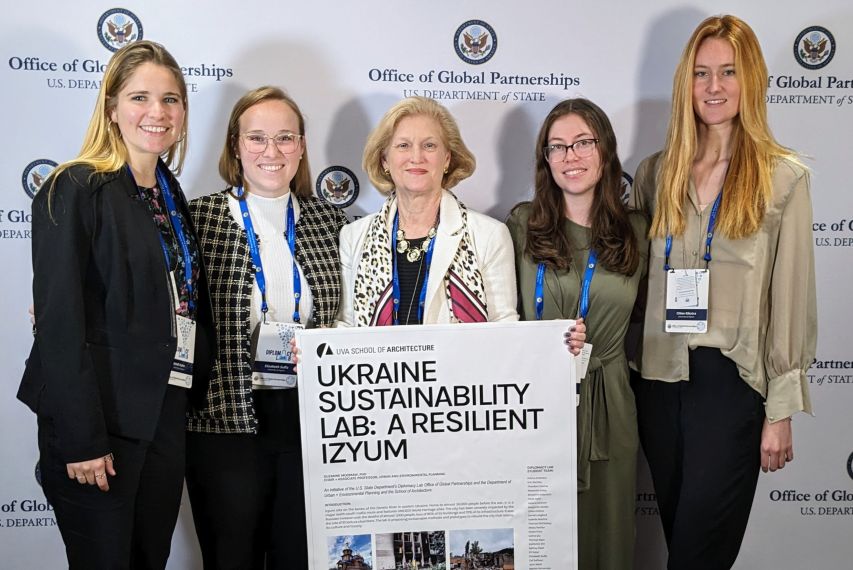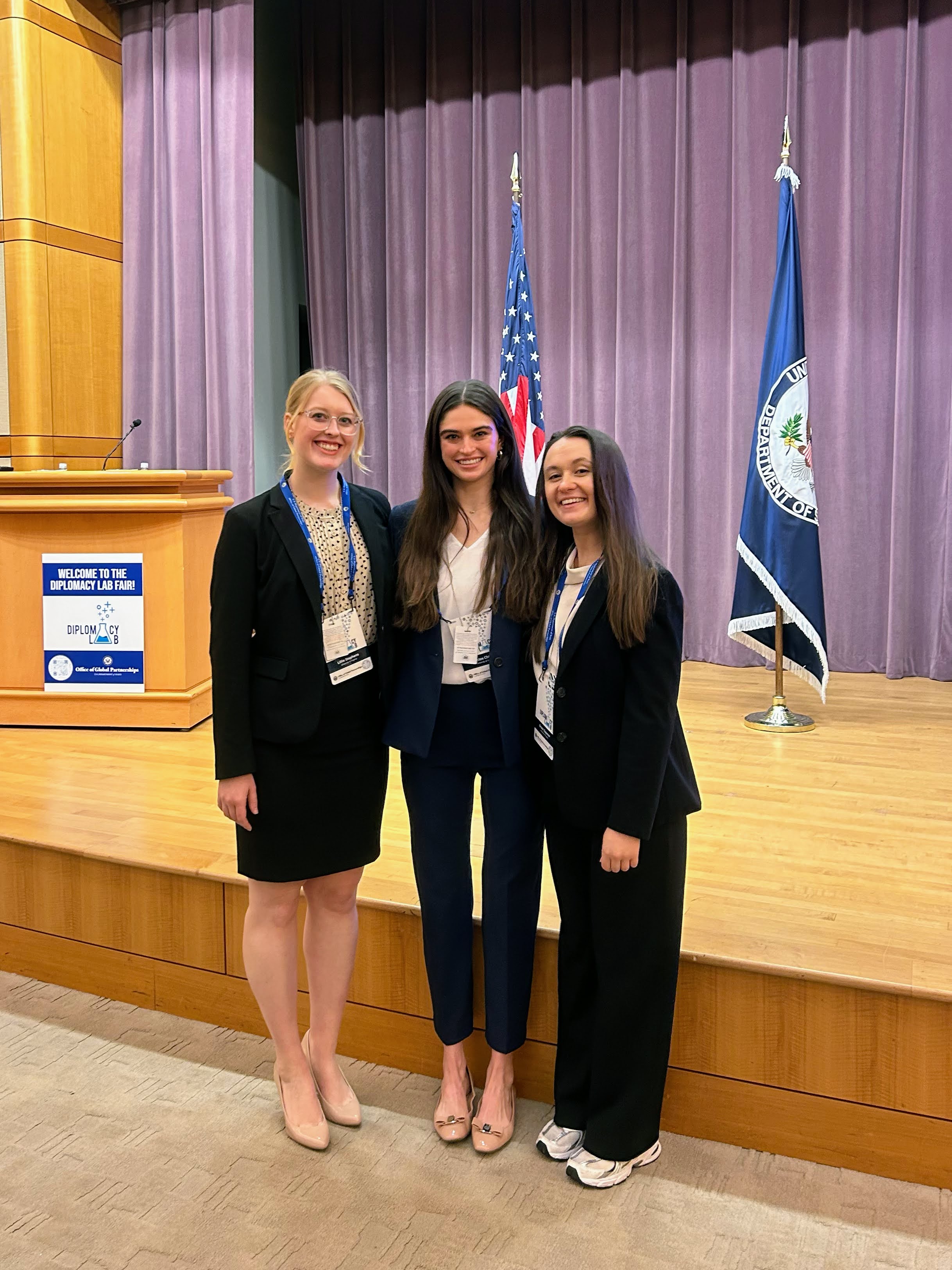The Diplomacy Lab program, launched in 2013 by the Department of State, engages students and faculty from universities across the country to address real-world foreign policy challenges and broaden the State Department's research base. This initiative allows students to contribute directly to the policymaking process while harnessing the intellectual capital of academic institutions. This year there were over 60 participating US institutions.
UVA Students Take Center Stage in Global Diplomacy
UVA Students Take Center Stage in Global Diplomacy

n a special recorded message at the opening of the Spring 2024 Diplomacy Lab Fair at the US Department of State in Washington DC last month, United States Secretary of State Anthony Blinken said that for every problem, someone, somewhere has an answer, or at least an idea worth trying. Some of the ideas that he referred to came from the University of Virginia students participating in the Diplomacy Lab program.
Two groups of UVA students from the School of Architecture and School of Law presented in the fair this year. The "Urban Planning for Ukraine's Green Recovery" project focused on sustainable reconstruction in a war-torn Ukrainian city and the "Measuring the Efficacy of the Accusatorial Federal Justice System in Argentina" project analyzed the effectiveness of the transformation of a legal system in Argentina. This event provided UVA scholars with a platform to showcase their research findings to State Department officers, engage with policymakers, and connect with fellow DipLab institutions.
In the legal reform project, Camilo Sánchez and a team of faculty and student researchers from UVA Law's International Human Rights Law Clinic, in collaboration with the US Embassy in Buenos Aires, evaluated Argentina's transition to the accusatorial justice system in the Salta and Jujuy provinces. In this system, instead of the judge playing an active role in gathering evidence, the prosecution and defense take on a greater role in presenting their cases and judges become more impartial arbitrators. By traveling to Salta to conduct interviews with lawyers and judges and observe how the trials are now conducted, the research team found widespread agreement that the new system has significantly improved justice delivery by improving fairness and expediting the process of evaluating cases.

"From the outset, working closely with Embassy officials provided valuable insights into the local context, legal frameworks, and societal dynamics at play, facilitating a nuanced understanding of the complexities of Argentina's legal landscape," reflected Chloe Chiles, a second-year JD Candidate, emphasizing the invaluable insights gained through direct engagement with the legal system in Argentina. “I came to law school in order to receive real world experiences working on hands-on projects in the context of international human rights law,” added third-year JD candidate Grace Zipperer. “This was such a rewarding experience in that regard.”
Similarly, over the Fall semester, Suzanne Moomaw and 24 students from UVA's School of Architecture established the Ukraine Green Recovery Lab, where they developed recommendations to rebuild the war-torn Ukrainian city of Izium, which has been devastated by the Russian aggression. The project focused on sustainable urban planning, encompassing everything from rebuilding schools and industry to enhancing parks and housing to sustainable systems and memorials for the city's 50,000 residents. At the end of the semester, students presented their comprehensive phased plan to the Ukrainian ambassador, State Department officials, and other dignitaries, receiving positive feedback and aiming to provide hope for a safer, more sustainable future for Izium.
"Working on the Ukraine Green Recovery Lab project has been a deeply impactful experience for me,” said Daniel Langford, a Masters in Architecture student. “The sheer scale of destruction in Izium underscored the importance of our work in sustainable urban planning, fostering resilience, and healing in post-conflict regions." Chloe Kikstra, a fourth-year undergraduate in Urban and Environmental Planning added that the impact of this project has redefined the scope of college courses. By addressing real-world conflicts, this work has become more impactful.
The students emphasized the value of their participation in the fair. Heidi Hahn, a graduating Masters of Urban and Environmental Planning student, shared that the feedback they received helped them to reflect on the importance of preserving a sense of place and the significance of cultural heritage in community resilience. Chiles explained that, in addition to showcasing the breadth of diplomatic initiatives, engaging with other research projects underscored the interconnectedness of global issues.
Looking ahead, both faculty and student participants anticipated that their work would have a continuing impact. Second-year JD candidate Lillie Stephens expressed her hope that their project sparks further research into criminal justice systems in Argentina and across Latin America. “We feel that we have created a model for sustainable, inclusive communities that could be used anywhere in the world including in our own city of Charlottesville,” Moomaw expressed.


